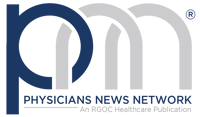
The Centers for Medicare & Medicaid Services (CMS) announced that three innovative accountable care initiatives will grow and provide higher quality care to more than 13.2 million people with Medicare in 2023. More than 700,000 health care providers and organizations will participate in at least one of the three initiatives – the Medicare Shared Savings Program and two CMS Innovation Center accountable care model tests. This growth furthers achieving the CMS’ goal of having all people with Traditional Medicare in an accountable care relationship with their health care provider by 2030.
“Through the CMS accountable care initiatives and working with our partners, we have made significant progress in addressing our greatest health care challenges,” said CMS Administrator Chiquita Brooks-LaSure. “Health care providers coming together as Accountable Care Organizations provide high quality and equitable care to people with Medicare while improving the sustainability of the Medicare program.”
The announcement includes three CMS accountable care initiatives: the Medicare Shared Savings Program (Shared Savings Program), the Accountable Care Organization Realizing Equity, Access, and Community Health (ACO REACH) Model,and the Kidney Care Choices (KCC) Model. Accountable Care Organizations (ACOs) are groups of doctors, hospitals, and other health care providers, who collaborate to provide coordinated, high-quality care to their Medicare patients. The focus of this coordinated care is to ensure that patients get the right care at the right time by reducing fragmentation between providers, which has several benefits, including avoiding unnecessary duplication of services and preventing medical errors.
In 2022, CMS published a vision for increasing access to accountable care to bring coordinated, high-quality care to patients by supporting organizations new to value-based care and shared savings to increase participation in ACOs, advancing health equity by expanding the reach of ACOs in underserved communities, and scaling successful features of model tests into the permanent Shared Savings Program.
The Shared Savings Program is the largest accountable care initiative in the country and is a permanent program in Medicare that was established by the Affordable Care Act. The Shared Savings Program has 456 ACOs and 10.9 million assigned beneficiaries in 2023. While the Shared Savings Program experienced a decrease in the number of ACOs and assigned beneficiaries for 2023, the policies finalized in the CY 2023 Medicare Physician Fee Schedule final rule are expected to grow participation in the program for 2024 and beyond, when many of the new policies are set to go into effect. These policies are expected to drive growth in participation, particularly in rural and underserved areas, promote equity, and advance alignment across the accountable care initiatives, and increase the number of beneficiaries assigned to ACOs participating in the program by up to four million over the next several years.
The ACO REACH Model aims to improve the quality of care for people with Traditional Medicare through better care coordination and by increasing access to accountable care in underserved communities. Innovative features the Model will test include benchmark adjustments to shift payments to better support care for the underserved and enhanced Medicare benefits, including care in the home. For 2023 the ACO REACH Model has 132 ACOs with 131,772 healthcare providers and organizations providing care to an estimated 2.1 million beneficiaries.
Importantly, in 2023, ACO REACH will increase access to accountable care in underserved populations. The ACO REACH Model will have 824 Federally Qualified Health Centers, Rural Health Centers, and Critical Access Hospitals participating in 2023 – more than twice the number in 2022. Increasing the number and reach of ACOs in underserved communities will help close racial and ethnic disparities that have been identified among people with Traditional Medicare in accountable care relationships. Lastly, in 2023 over 55% of REACH ACOs have self-reported as provider organizations.
The KCC Model focuses on coordinating care for Medicare beneficiaries with chronic kidney disease stages 4 and 5 and end-stage renal disease. In addition to care coordination, the KCC Model focuses on key areas of concern for this population, including delaying the onset of dialysis and increasing access to kidney transplantation so more patients can live fuller and longer lives. For 2023, the model will include 130 KCC entities, which are accountable for the quality and care of their aligned beneficiaries. The KCC Model will have more than 8,398 participating health care providers and organizations and 249,983 beneficiaries in 2023, an 87% increase in the number of providers and organizations, a 62% increase in the number of beneficiaries from 2022, and the second cohort of the KCC Model increases the geographic reach of the Model into new areas, including North Dakota and South Dakota.

